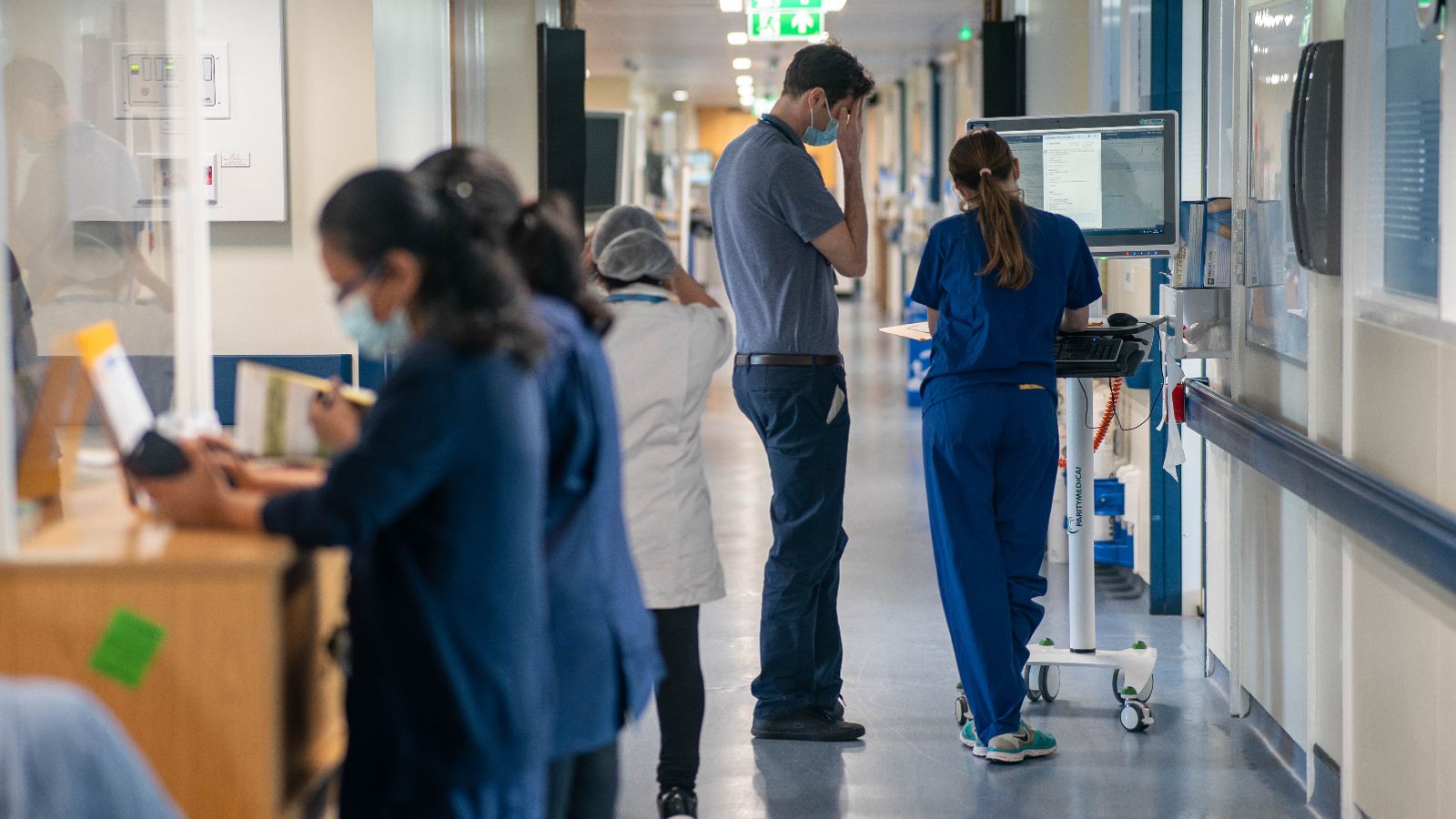'Continual state of crisis': Public's satisfaction with NHS is at a record low
Satisfaction with the NHS peaked 14 years ago - and since 2020, levels have dropped significantly. Experts are urging political leaders to "take note" ahead of the upcoming general election.

Public satisfaction with the NHS has dropped to the lowest level on record, according to findings from a long-running poll.
Just 24% of people said they were satisfied with the health service in 2023, with poor access to GPs and long wait times for hospital treatment the main reasons for dissatisfaction.
More than 3,000 people across England, Scotland and Wales were surveyed for the British Social Attitudes poll, which is seen as a reliable barometer for how people feel about the NHS.
Satisfaction levels were down five percentage points from the year before - falling to the lowest level since records began in 1983.
From A&E to dentistry, satisfaction with every service is at or near historic lows. Results for social care were even worse, where just 13% were happy.
When asked what the most important priorities for the NHS should be, 52% said making it easier to get a GP appointment and 51% said increasing staff numbers.
Improving waiting times in A&E and for planned operations closely followed - chosen by 47% and 45% of people respectively.
Crucially however, support for the founding principles behind the NHS - free at the point of use, available to everyone and primarily funded through taxes - has remained constant.
This indicates the public do not want a change to the NHS - they just want the model they have got to work, a report analysing the poll said.
Satisfaction with the NHS peaked 14 years ago in 2010, when 70% of people were satisfied with the health service. But since 2020, levels have dropped by 29 percentage points.
"A decade of squeezed funding and chronic workforce shortages followed by a global pandemic has left the NHS in a continual state of crisis," the report said.
When it comes to funding a whopping 84% of people polled said they thought the NHS had a severe problem, with 48% voting that ministers should increase taxes and spend more on the health service.
It was people with the most monthly income that were more likely to choose "increase taxes and spend more on the NHS" than keep taxes the same or reduce them.
Dan Wellings, a senior fellow at the King's Fund - which sponsors health and care questions in the poll - said political leaders should "take note" of how far satisfaction levels have fallen ahead of the upcoming general election.
Professor Pat Cullen, general secretary of the Royal College of Nursing, added that any party wanting to be in Downing Street in a year "must demonstrate clear intent" of investing in nursing to improve pay conditions and stabilise the workforce.
A spokesperson for the Department of Health and Social Care said it was "fully committed" to a "faster, simpler and fairer NHS" and has seen "good progress" in cutting waiting lists in England.
"We are providing the NHS with record funding of nearly £165bn a year by the end of this Parliament, an increase of 13% in real terms compared to 2019," they said.
"Overall NHS waiting lists have decreased for the fourth month in a row and we've delivered on our commitment to provide an extra 50 million GP appointments months ahead of schedule."
-sky news







